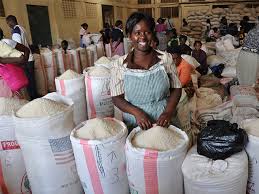The World Bank stated in a report on Monday that while economic growth is expected to pick up in Sub-Saharan Africa over the next two years, it will not be sufficient to reduce the region’s poverty significantly.
In its biannual Africa’s Pulse report, the World Bank predicted that the region’s GDP will grow by 3.4% this year and 3.8% in 2024 as reducing inflation encourages private consumption, up from 2.4% in 2023.
The COVID-19 pandemic and Russia’s war in Ukraine severely affected several Sub-Saharan African nations, driving up inflation while borrowing became unaffordable due to rising global interest rates.
Entire regions have been impacted by both drought and violence. “Growth is set to bounce back in Sub-Saharan Africa but the recovery is still fragile,” according to the report.
Laptops 1000“The pace of economic expansion in the region remains slow and insufficient to significantly affect poverty reduction.” “Per capita GDP growth of 1% is associated with poverty reduction of only 1% in the region, compared to 2.5% in the rest of the world.”
Angola’s growth rate is expected to increase to 2.8% from 0.8% last year, primarily due to the non-oil sector amid declining oil production, whereas South Africa’s growth rate is predicted to double in 2024, although only to 1.2%.
In contrast, the East African Community region is anticipated to grow by 5.3% this year as a result of robust growth in the Democratic Republic of the Congo, Kenya, Rwanda, and Uganda.
Nigeria, the largest economy in West Africa, is expected to grow by 3.3% this year, less than its long-term average.
2020 saw Zambia go into default on its external debt, which was followed by Ethiopia late last year and Ghana in 2022.
Although the public debt-to-GDP ratio for Sub-Saharan Africa is expected to decline from 61% in 2023 to 57% this year, the report stated that over half of the region’s nations are still in or in high danger of experiencing financial hardship.
Laptops 1000It stated that even if expenses were beginning to decline, borrowing from outside was still more expensive than it was before the epidemic.
Andrew Dabalen, chief Africa economist at the World Bank, stated in a press briefing that “we can’t tell if there’s going to be another default or not.”
“Typically when countries are in these situations, another big shock could send a lot of these countries into these types of financial crises and therefore default,” Dabalen said.





















